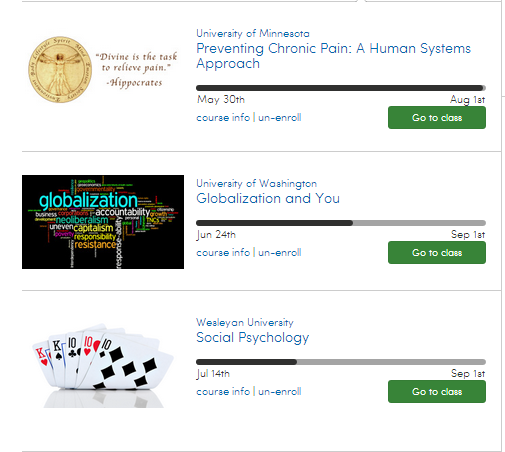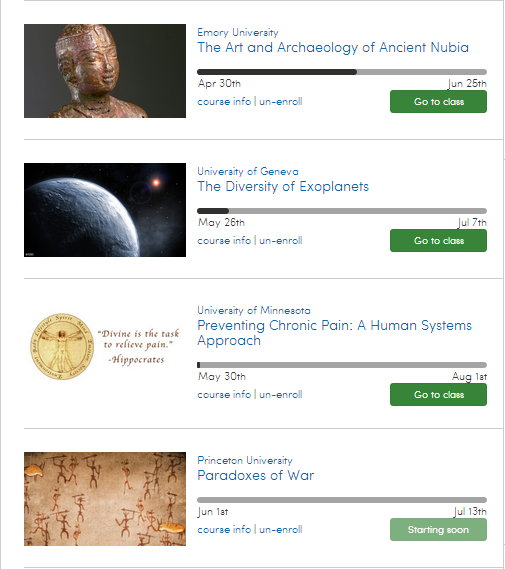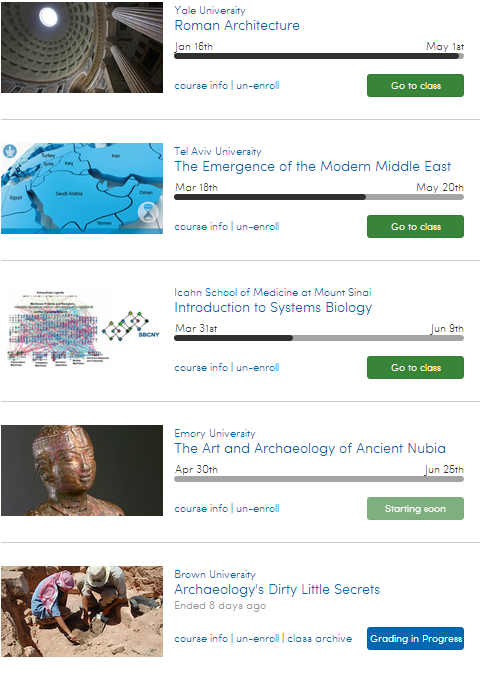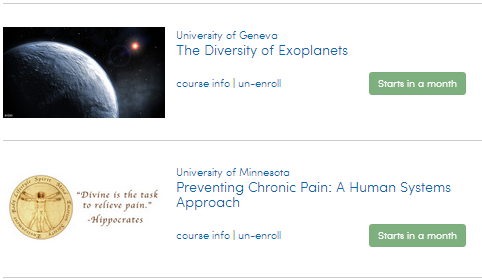Coursera Experience - August 2014
/ Quite a few courses ended in July:
Quite a few courses ended in July:
- Diversity of Exoplanets (University of Geneva)
- Preventing Chronic Pain (University of Minnesota)
- Paradoxes of War (Princeton University)
- An Introduction to Global Health (University of Copenhagen)
I enjoyed all of them but there were times I thought I had started more than I could possible finish. It is incredibly difficult to forego a course on a interesting topic; I need to develop more will power!
As I start August, only two courses are in session and I am enjoying the reduction. It is challenging to keep up with the classes while I am traveling….but I have succeeded in listening to the lectures. I’ll have to catch up with the discussion forums and assignments later. The two courses are:
Globalization and You (University of Washington). I just finished the module on Money last week. The history of monetary policy and outcomes was very well done. It may be the best module of the course!
Social Psychology (Wesleyan University). Every week there is something that surprises me....and quite a lot that is very applicable to everyday life. The forums are lively in this one ---- worth the time to peruse and participate.
I have one course that will be starting up in August after I am back home!
 Beauty, Form, and Function: An Exploration of Symmetry (Nanyang Technological University, Singapore). I am looking forward to this course for several reasons: it is a very different topic area from other courses I’ve taken, it is offered by a different university that other courses, and I anticipate that this topic will benefit from the cultural diversity what will be part of the MOOC students.
Beauty, Form, and Function: An Exploration of Symmetry (Nanyang Technological University, Singapore). I am looking forward to this course for several reasons: it is a very different topic area from other courses I’ve taken, it is offered by a different university that other courses, and I anticipate that this topic will benefit from the cultural diversity what will be part of the MOOC students.





















